I do, but full disclosure: the reason I soak my beans is that my Mom (The Mother Unit) told me I should.
Let’s face it, the reason we do a lot of things in the kitchen is that our mentors told us to do things a certain way. While there is nothing wrong with that, it does tend to limit our thinking. The way we cook dry beans is not immune. Something as seemingly simple as cooking a pot of beans can be wrought with angst and shaded in mystery and myth. Should you soak your dry beans? When do you add salt? Why aren't my beans getting soft? Guess what. Like with most things, there is no right or wrong way or answer, so no wonder it can have us scratching our heads. Let’s take a look and see if we can take the angst out of a pot of beans.
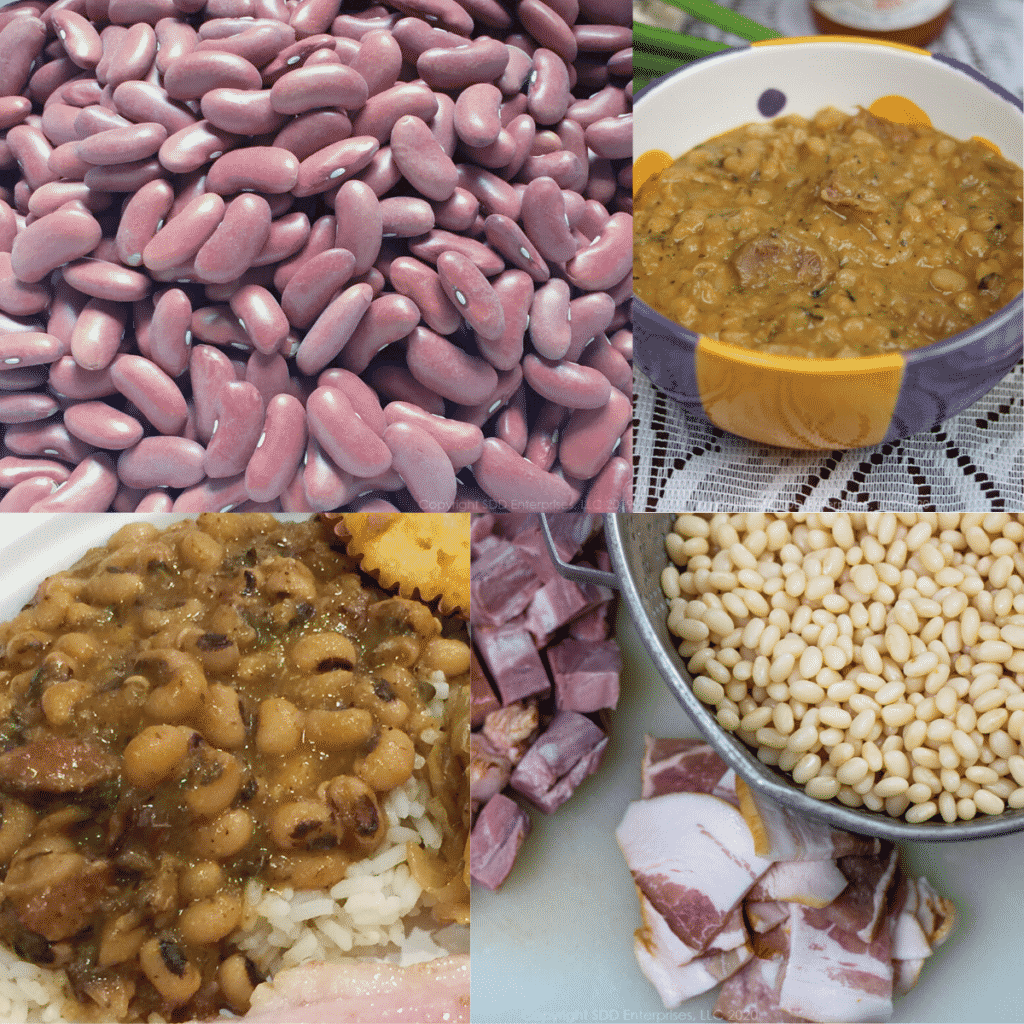
[Publishers Note: This is an update of the article I wrote originally in February 2018. Always seeking to provide better information for my readers, I've updated and added some information and reformatted photographs for better web viewing. Let me know what you think.]
This post is not sponsored, but you will find affiliate links on this page. As an Amazon Associate, I earn from qualifying purchases. The price you pay as a consumer does not change, but I may make a small commission based on your purchase.
Should you soak your beans?
Soaking beans is supposed to make them cook faster and reduce their flatulence producing properties. (FPP for those of us in the know, well actually I just made that up). The truth is, it may affect cooking time but not to any significant degree and it does nothing to de-gasify, according to research.
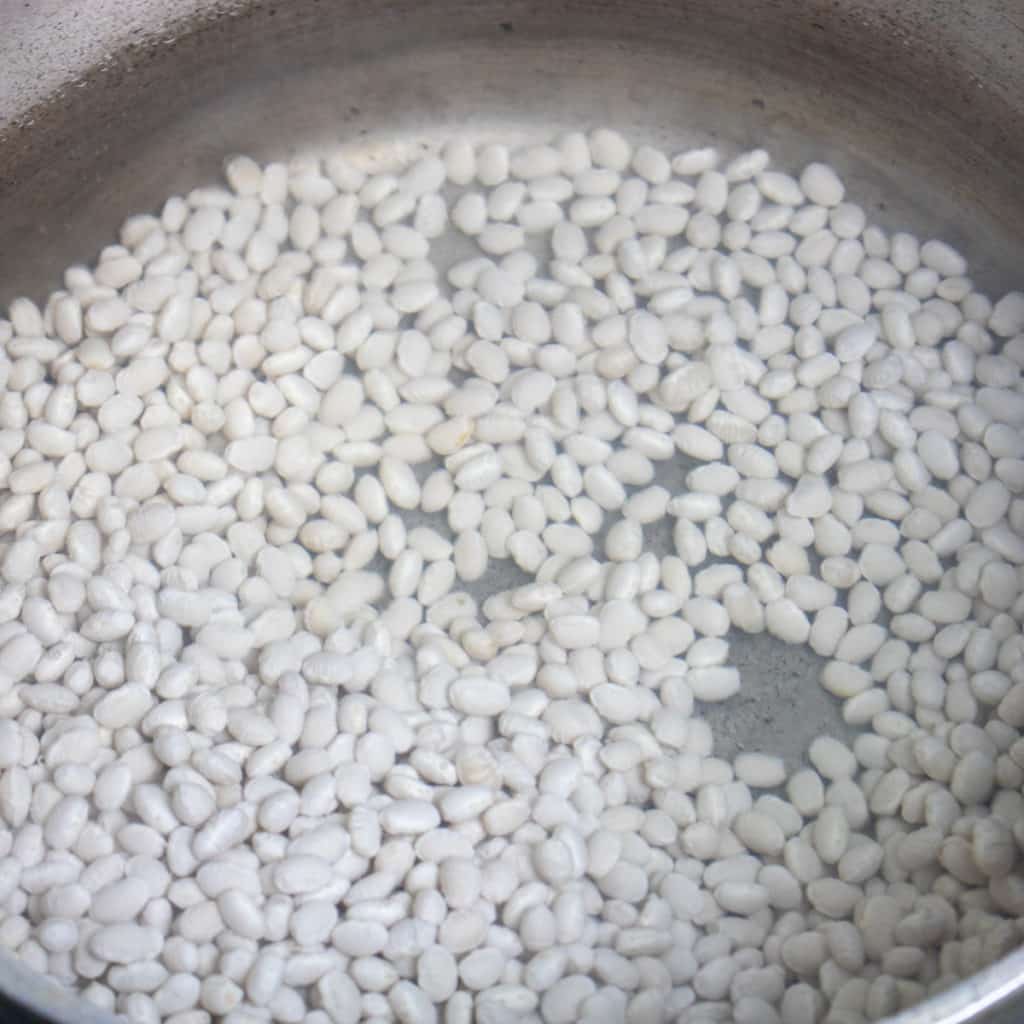
The theory is that the soaking water penetrates the seed coat and softens it. Sounds logical, but the thing is, beans are seeds and seeds are built to resist destruction. All they want to do is germinate and grow into a plant, making them tough little buggers. The seed coat is there to protect the seed so water doesn’t just soak in, there are three tiny openings called the raphe, hilum and micropyle, whose job it is to let stuff in, like water, which then can be absorbed and the bean can swell up and soften.
Research indicates that soaking some beans does indeed shorten cooking time but it’s only marginal and there is a tradeoff with flavor. Soaked beans may lose some of their flavors and perhaps some nutrients and it does nothing to reduce the FPP, which is more complicated. If soaking the beans will have the desired effect depends more on the type of bean, how long they have been in the pantry, and a couple of other factors. For example, Black-eyed Peas, split peas and lentils are smaller and softer beans and don't require soaking. If you have the time, a longer simmer may offset the marginal benefits of shorter cooking time from soaking. Like most things, it's a matter of personnel preference.
If you’re going to soak, Camellia Brand suggests three soaking methods depending upon your preference and how much time you have. For all three, rinse the beans in a colander to remove any dust before soaking. Pick through the beans to remove inferior beans or pebbles. (I never have understood where the pebbles would come from, but get them out of there before you break a tooth). When you’re done soaking and ready to cook, just drain and rinse the beans or you can continue cooking them in the soaking water.
Here’s what they suggest:
- 8-hour or overnight slow soak. Rinse and sort your bean, then cover with about 10 cups of cold water, cover and refrigerate for 8 hours.
- 3-hour hot soak. Bring 10 cups of water to a boil, add 1 pound of beans and return to a boil. Remove the beans from the heat immediately, cover and set aside for 2 to 3 hours at room temperature.
- 1 Hour quick soak. Bring 10 cups of water to a boil. Add 1 pound of beans and return to a boil. Boil for 2 to 3 minutes, then remove from the heat, cover and let sit at room temperature for 1 hour.
Why Are My Beans Still Hard?
There is nothing more disheartening than slowly simmering a pot of beans for hours and hours and they’re still hard as a rock. While soaking should help your beans cook faster and be more tender, there are other factors that likely impact whether or not your beans ever get soft.
- Hard water. Hard water is water that is high in dissolved minerals, largely calcium and magnesium, which can build up on the seed coat and block water from reaching those ports. If this is your problem, try using distilled or just plain old bottled water.
- High altitudes. Higher altitudes, say over 3000 feet above sea level, have lower atmospheric pressure and marginally less oxygen which can impact the cooking times of many things, like baking and beans. If your kitchen is in a high-altitude location you may just have to simmer your beans longer than cooks at lower altitudes, or perhaps use a pressure cooker.
- The age of your beans. The most common factor that may lead to tough beans is the age of the beans. Like most things, dry beans continue to lose moisture as they sit. No amount of soaking will turn back the clock; as beans age, the pores tend to close and the outer coating changes. If water can’t get in there, the beans will not get soft no matter how long you soak them. Even though you may have just purchased the beans, you don’t know how long they have been on the grocery shelf. Try to buy your beans at a store with a high turnover rate on their dry goods.
When do you add salt?
Another of the old wives’ tales is never adding salt to your beans until the end. It's a common belief that salting your beans at the beginning will toughen the beans thus increasing cooking times. This has been debunked, toughness and longer cooking time are the results of the aforementioned issues-to a lesser extend the altitude and hardness of your water and to the greatest extent the quality and age of your beans. However, there are compelling reasons to hold off on the salt until the beans are cooked, and the reason I generally advise in my recipes to hold off on adding salt until the end.
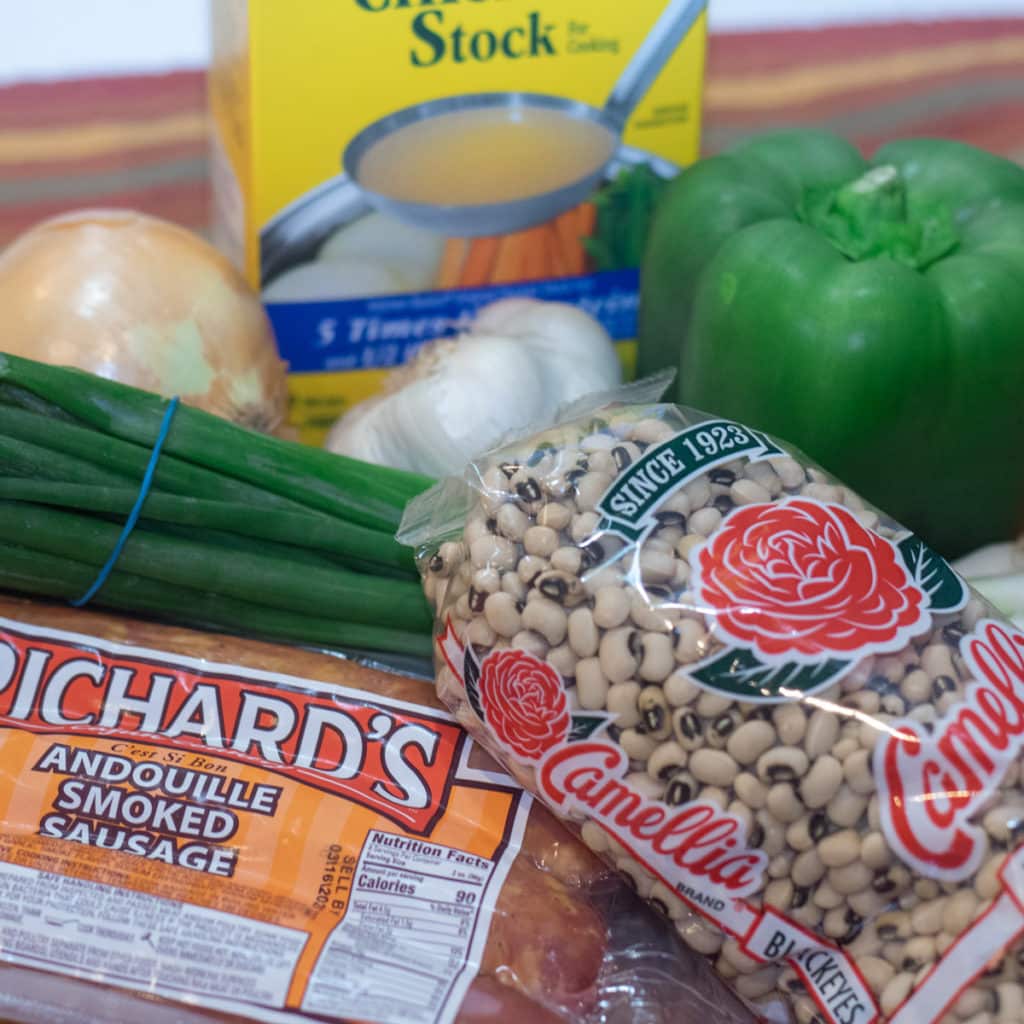
Seasoning-meats, commercial stocks and Creole seasonings often have a high salt content and will likely impact the flavor of your beans. By waiting until the beans are almost finished, you can judge for yourself and add the amount of salt that gives you the flavor you want.
Can beans be de-gasified?
OK, so that’s soaking and salting. But let’s be honest, beans are the musical fruit, they make you fart and that embarrasses some people.
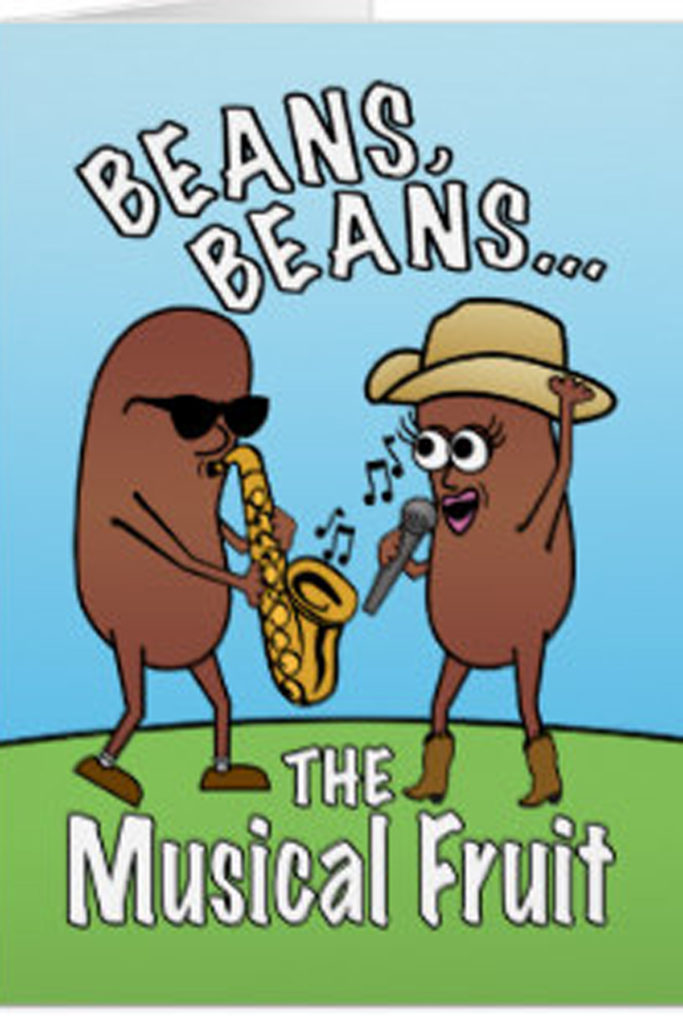
Why do they do that and can we do anything about it? Beans are a high fiber food that contains complex sugars, (like raffinose and stachyose) called alpha-galactosides. Generally, in the human body, enzymes aid in the digestion of food, but our bodies don’t produce any enzymes that can digest these complex sugars. These pass through our stomach undigested until they reach the large intestines where they ferment. (Sounds gross to me, but we have to navigate this murky water to find out why, when you pull your grandfather’s finger, he...well, you know what he does). Fermentation produces gases; hydrogen, carbon dioxide, and in some individuals, methane. Rumbly in the tumbly-it’s not going back the way it came in so it takes the path of least resistance....and escapes out the back door disguised as a fart. Well actually, it is a fart. There you have it. He who denied it, supplied it.
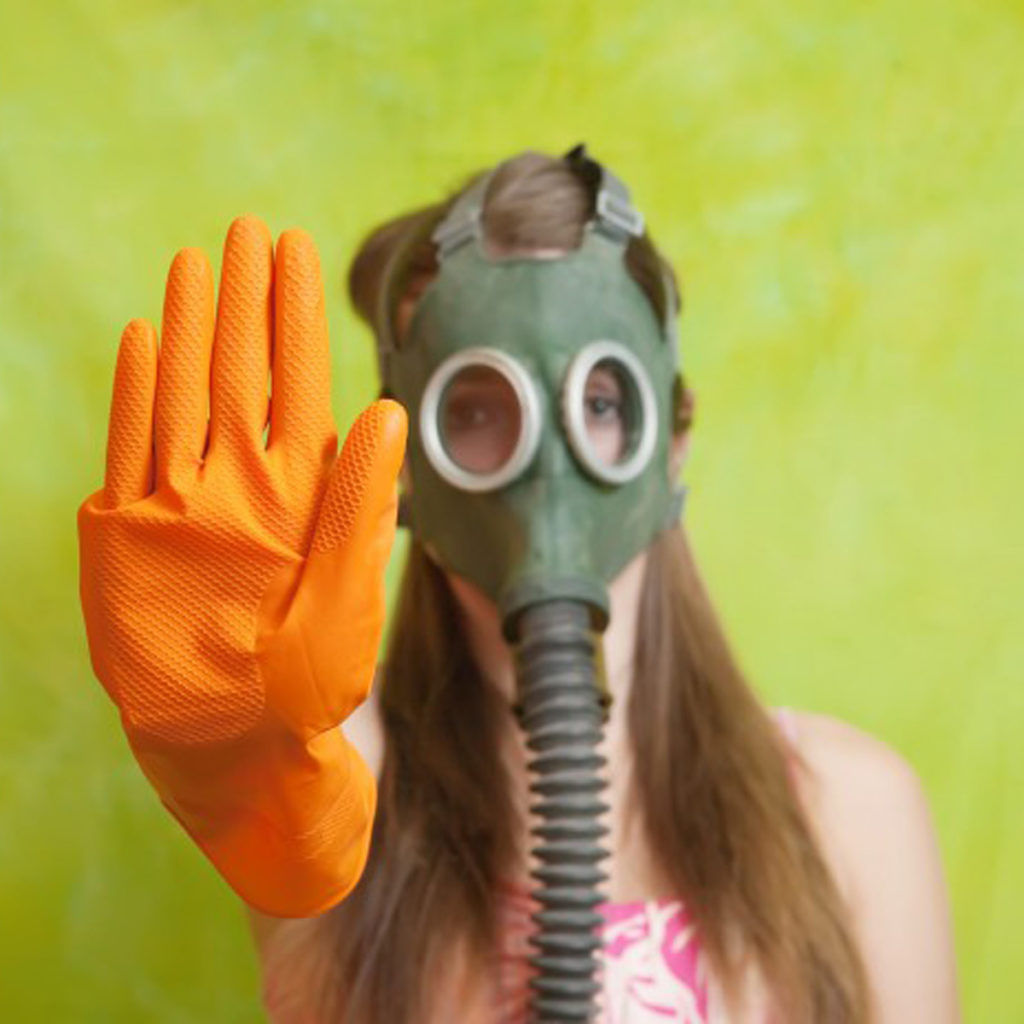
There has been a lot of research on ways to de-gasify beans (some people have all the fun). Turns out that soaking does not help the beans to give up these sugars. Some studies have determined that adding some baking soda "significantly decreases the content of the raffinose family of sugars". Similarly, the US Department of Agriculture (USDA) developed a process of blanching and soaking beans that eliminate 90% of these sugars. Where these studies did show that there are ways to eliminate the gas, it proved to be at the expense of flavor, and I think we all agree that's not an option, So it’s a tradeoff-optimal flavor or a few farts. It was suggested by the USDA that eating more beans will condition the body to better handle these complex sugars better than only eating the occasional bean. In my quest to find which way the wind blows (so to speak) on this flatulation issue, I ran across a very interesting article by Dr. Michael Greger, MD who also noted this phenomenon. In his 2011 article Beans & Gas, Clearing the Air, Dr. Greger concludes that the concern about the flatulent effect of beans may be an overreaction because the body does adapt to longer-term ingestion of beans and the health benefits of having beans in your diet are so profound that we should all be finding ways to keep beans in our diet and not the opposite. Maybe this is where the childhood chant comes from..." beans, beans, they're good for your heart, the more you eat, the more you ..." well, you get the idea. So, I think Dr, Greger is whispering in our ears...don't worry about the gas, the nutrition and flavor that beans provide in the diet far outweigh the embarrassment of letting one slip...which is really an indication that all systems are working as they should.
Are beans good for you?
Soaking-check, salting-check, farts-check. Now, are they good for you? In my experience, Camellia Brands has been my (and most of Louisiana’s) go-to brand for dry beans. They have been selling dry beans since 1923 and are recognized as experts in the field. Here is what they say about the nutritional quality of beans:
Studies have shown that a diet of beans may reduce:
- Risk of certain types of cancers. For example, the estrogens in beans can help reduce cancers caused by certain hormones.
- Heart disease risk.
Beans also:
- Have a low glycemic index, are digested slowly, and help maintain a normal level of blood sugar.
- Contain folic acid, which is associated with a reduced risk of birth defects.
- Are good for people with certain food allergies: they are a great source of nutrients in gluten-free diets and can be made into gluten-free flours.
- Are rich in fiber and can help with weight control. People who eat more fiber tend to weigh less than those who don’t.
It’s no wonder that beans have moved into the spotlight as a superfood. Consider the following:
- Unlike meat, beans are not only low in fat but are free of saturated fat and trans-fat. (All the protein of meat, but no cholesterol!) Plus, lean proteins help promote muscle.
- Beans are a complex carbohydrate and help you maintain your energy level throughout the day.
- Beans also contain antioxidants, phytochemicals, folate, manganese, potassium, iron, phosphorus, copper, magnesium, and non-lactic calcium.
- When eaten with grains, beans provide a complete protein.
- The USDA Food Patterns classify beans and peas as both vegetables and proteins.
- Check out what the USDA recommends in its 2020-2025 Dietary Guidelines.
So, What are the Answers?
Well, there you have it. Soaking doesn’t hurt, it may help a little. It shortens the cooking time some but does nothing else. There may be a trade-off with flavor so its recommended by USDA researchers for the most flavorful beans skip the soaking and start the cooking in hot water. Salt only at the end? Again, a personal choice; if you’re using ingredients that may contain lots of salt-like seasoning meats and Creole seasonings, it may be wise to wait until the end so you don’t over-salt the beans. Nutritionally, beans can be considered a superfood due to their outstanding nutritional contribution to our diets. As far as flatulence, you are on your own!
If you still want more information, read these great articles:
Nutrition, Beans and Your Health
Here are some great recipes using dry beans from Sweet Daddy D
Leave a QUESTION or COMMENT below.
Be sure to follow us on Social Media and don't forget to SHARE this with your friends.
Sign up for our email notifications of NEW RECIPES right HERE and we will deliver them right to your inbox!
Yeah You Right!

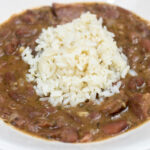
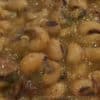

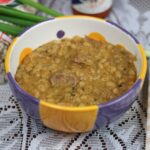
Comments
No Comments